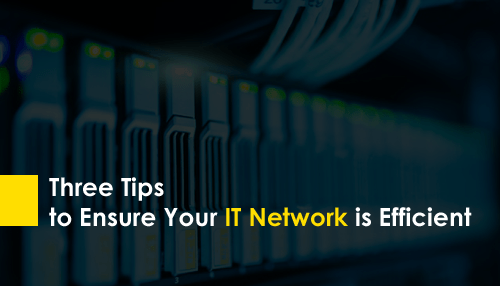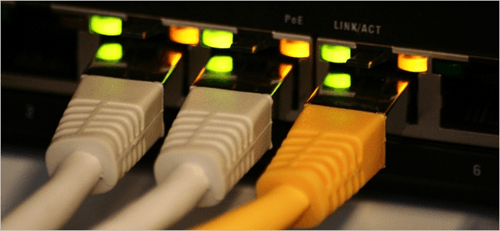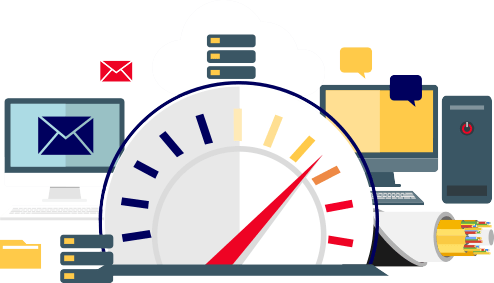What do you do when your network slows down? Do you buy new hardware, upgrade your bandwidth, or perform other troubleshooting procedures? Reliable network performance is essential for driving the efficiency of your business operations and keeping profits soaring. When network speeds start to dip, it undermines not only your efficiency but also your data security.
Here are three tips to enhance the efficiency of your network, ensure the smooth flow of business processes, and uphold data security.
Understand Your Network
It can be challenging to address performance issues if you don’t have any idea of what actually happens on your network. People are generally quick to the blame the network for poor performance, but sometimes the computer hardware or its software is the real culprit.
When your network slows down, consider rebooting the modems and routers and then check if your computers are running at efficient processing speeds. If there’s no improvement in speed, or if the computers have started to freeze often, they may have reached the end of their usefulness, and it may be time to shop for new ones.
Old software or malware may also cause bugs that create a backlog in your system. You should properly diagnose the cause of the poor performance before you spend money on new hardware or bandwidth.
Minimise Network Layers
Minimising network layers in your systems helps to shorten the network clearance route, speeding up your connection as a result. You should set up few network routers and switches in your network rather than setting up many devices with a few ports.
Fewer switches minimise the number of channels available for data to pass through. This results in faster connections. If possible, you should use one router to connect to all devices in your network. To ensure this network connection is implemented effectively for optimum results, it is important to engage a reputable IT consultancy London Company.
Upgrade Your Bandwidth.
Bandwidth is another major cause of poor network performance. You should exhaust other troubleshooting solutions before you consider upgrading your bandwidth, however.
You don’t want to waste money on the wrong problem. If other solutions don’t work, then low bandwidth could be the culprit.
If you are currently using a broadband connection, it may be time to switch to a fibre connection. A couple of years ago, fibre connections were reserved for larger companies. Today, however, their prices have significantly dropped, and many small businesses can afford them.
In Conclusion
Network efficiency is an integral component to the success of any business. A business with a slow connection and the resulting inefficient data transfer across its network will have a hard time keeping up with the competition in today’s data-driven business world.There are several ways to improve network efficiency, including minimising network layers, replacing old software and hardware, and upgrading bandwidth among other solutions. If you aren’t sure of what to do, consider engaging the services of a reputable IT Consulting Company.




